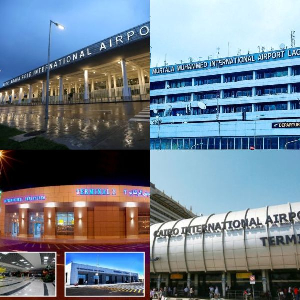Kwesi Kwaning-Bosompem, the Acting Controller and Accountant-General, on Monday, said Public Universities stand to benefit from their migration onto the Government of Ghana (GoG) Mechanised Payroll.
With their migration, the need to look for resources to run their internal payrolls, as well as waiting for subventions to enable them to pay monthly salaries, would be a thing of the past, he said.
Mr Kwaning-Bosompem, in a speech read on his behalf during the sensitisation of the Staff and representatives of the various Workers’ Union of the University of Ghana (UG), on the migration, said some public institutions including the Ghana Institute of Journalism, University of Professional Studies, all Technical Universities, and the Council for Scientific and Industrial Research, had already been migrated unto the system.
He said the sensitisation programme was therefore an opportunity for further engagement with the remaining eight public institutions including the (UG) to continue to collaborate in the country’s institutional efforts towards a prudent financial management of the economy.
He explained that bringing all Public Institutions on the GoG Mechanised Payroll would therefore facilitate the meeting of deadlines for the preparation and publishing of Financial Statements of the Government.
“My department is enjoined by the Public Financial Management (PFM) Act, 2016 (Act 921), and the Public Financial Management Regulation 2019 (Legislative Instrument 2378), to among others, keep, prepare, render and publish Financial Statements on the Consolidated Fund of Ghana both monthly and annually, not later than three months after the end of the financial year,” he explained.
According to him, the Controller and Accountant-General’s Department (CAGD), was also mandated by those legislations, to make disbursements on behalf of the Government, including the payment of monthly salaries to government employees in active service, pension gratuity and monthly pensions to those on retirement, and release of funds to prosecute government projects and development throughout the country.
Mr Kwaning-Bosompem, said the GoG Mechanised Payroll was a key component of the Ghana Integrated Financial Management System (GIFMIS), to account and report on Government financial transactions.
Yet, an efficient economic management hinged on the availability and accessibility of reliable data, saying successful migration of the remaining Public Universities would enhance economic planning especially, with regards to budget preparation and execution.
He assured all employees of the various Institutions involved of the flexibility of the CAGD’s payroll system functionalities, saying their initial concerns raised at previous engagements, regarding sabbatical leave, data imputing, and payroll as a tool for discipline among others, had been taken care of.
Ms Georgina Tyson, the Consultant for the GoG Mechanised Payroll system, made a presentation on the various stages involved in the migration process which, included data collection, training activities, the setting up of Personnel Processing Sections (PPS), test and parallel run.
She said Ministries Departments and Agencies of Government were responsible for imputing their own data which were often done by the Human Resource or PPS, and urged these key Units to effectively cross-check their data impute to prevent errors that may cause delays in the payment of salaries of Employees.
Some of the participants, during the question time, expressed their worries and discomfort about the Migration Payroll system, saying since the CAGD was already saddled with a myriad of challenges with its current 550,000 active clientele.
However, Ms Tyson, explained that the CAGD’s Mechanised Payroll was a robust system with various flexibilities to suit the policies of various institutions.
She said apart from being very secured, its internet connectivity was through the National Information Technology Agency (NITA) platform, allowing swift access to authorized persons to effectively operate, and avoid delays in payments of remittances, salaries and reimbursements.
General News of Tuesday, 29 September 2020
Source: GNA













